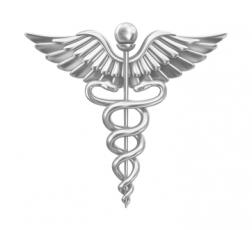World Health Organization urges strengthening of health system responses to violence
Fri 26 Sep 2014
The World Health Assembly (WHA) (the decision-making body of the World Health Organization) (WHO) has called for states to strengthen the role ...

The World Health Assembly (WHA) (the decision-making body of the World Health Organization) (WHO) has called for states to strengthen the role of the health system in addressing violence, in particular against women and girls, and against children.
The WHA acknowledged existing efforts aimed at coordinating prevention and response by health systems. However it noted that the current health system inadequately addresses the problem of violence despite many cases of violence resulting in health related consequences; and that this forfeits opportunities to contribute towards a comprehensive multisectorial response to violence.
To affirm the important and specific role that national health systems must play, the WHA urged member states to take a number of actions, including the following:
- Promote establish, support and strengthen standard operating procedures aimed to identify violence against women, girls and children. This is especially important when considering the important role of health care systems in providing care and making referrals to support services.
- Provide appropriate and continuous training to all public and private professionals from health and non-health sectors as well as caregivers and community health workers who provide care and support to persons, but especially women, girls and children affected by violence.
- Ensure timely access for victim and perpetrators affected by interpersonal violence to effective health, social and psychological services and to evaluate the effectiveness of these services in stopping the reoccurrence of interpersonal violence.
- Improve the collection and, as appropriate, dissemination of data which identifies the magnitude, risk and protective factors, types and health consequences of violence, in particular against women, girls and children. Information on best practices which consider the quality of care and effective prevention responses should also be improved.
- Ensure that health systems are contributing to ending tolerance towards violence through advocacy, counselling and data collection, while also promoting gender equality and the empowerment of women and girls by promoting age appropriate engagement of men and boys alongside women and girls as agents of change in their family and community.
The WHA requested that the Director-General draft a "global plan of action to strengthen the role of the health system within a national multisectoral response to address interpersonal violence in particular against women and girls and against children."
A global status report on violence and health is also currently being developed, in cooperation with the United Nations Development Programme and the United Nations Office on Drugs and Crime.
For further information, see the World Health Organization website.
A wealth of information, research and resources are also available from WHO on the Prevention of Violence and Violence Against Women.
Image: iStock


